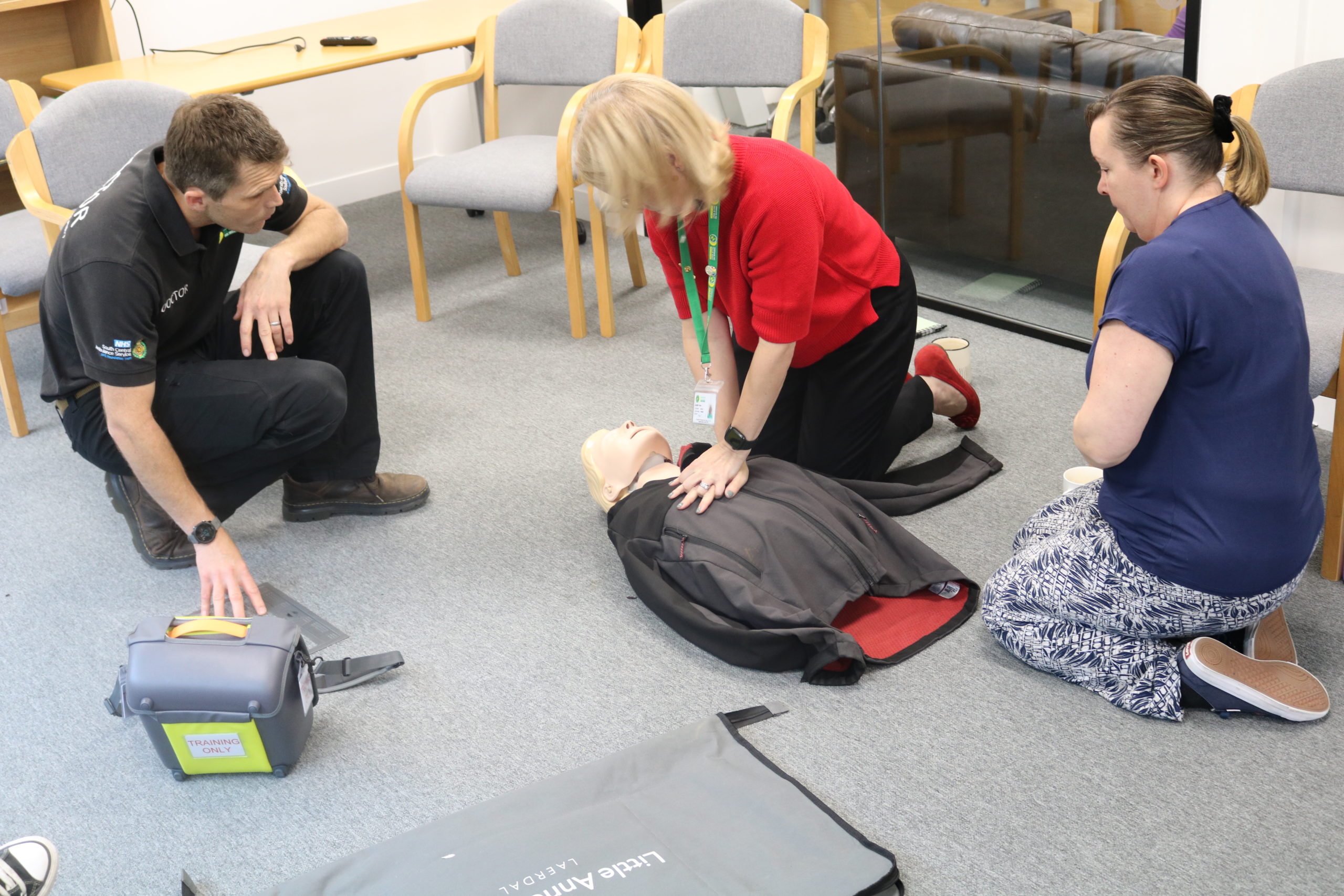Hampshire and Isle of Wight Air Ambulance’s CPR Skills for Life campaign gives participants the confidence to identify and perform effective CPR and use of an automated external defibrillator.
1 in 5 missions carried out by the air ambulance service is to a cardiac-related incident. There are approximately 30,000 out-of-hospital cardiac arrests in the UK each year, with fewer than 1 in 10 people surviving.
The CPR Skills for Life sessions are free of charge and are delivered by a mix of the charity’s Critical Care Team and Basic Life Support Instructor trained staff and volunteers.
Participants learn how to assess a patient, call for help, perform effective chest compressions and how to use a defibrillator.

All members of the charity team have been trained in basic life support by the service’s life-saving paramedics and doctors – from the finance assistant to the CEO, everyone is now a potential lifesaver. The charity aims to have its 150 volunteers to be trained by the end of 2025.
The charity team visited luxury cruise companies Regent Seven Seas, Norwegian Cruise Line and Oceania Cruises, who share offices in Grosvener Square, who have been great supporters of the air ambulance charity following a medical emergency of one of their colleagues in September 2023.
45 members of the cruise teams brushed up on their life-saving skills. One of which was Lynn Goodsell, Senior director at Norwegian Cruise Line.
She said:
“Having to do CPR is the worst thing that could ever happen, but if you’re equipped with the knowledge and skills of what to do, so many more people are going to have a better chance of survival and recovery.
“I’m definitely more confident now if I had to do CPR or use an AED.”
Clinical Director of Hampshire and Isle of Wight Air Ambulance, Dr Simon Hughes, said:
“Out-of-hospital cardiac arrest survival rates are shockingly low in the UK. Every minute that goes by without a patient receiving CPR or defibrillation, their chance of survival decreases by 10%. Much of the work we as a clinical crew do is only possible because bystanders, often friends and family members, have acted quickly and known what to do in an emergency.”
Businesses, schools, community groups and clubs can get CPR confident, including how to use an automated external defibrillator, by signing up to CPR Skills for Life.


 Donate
Donate






